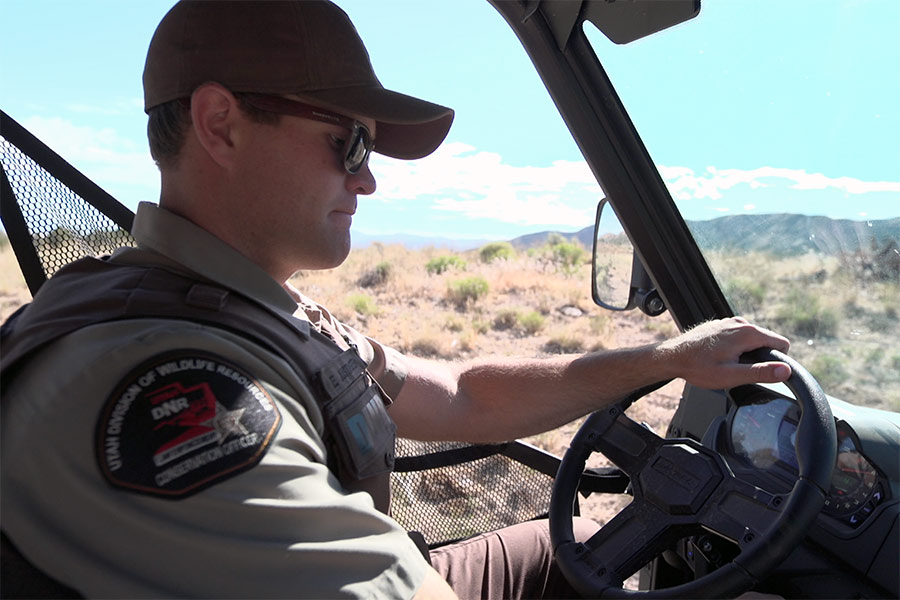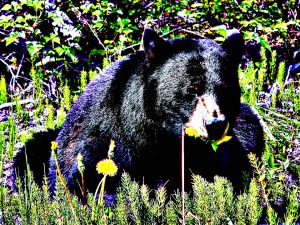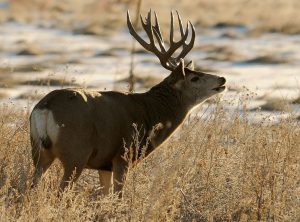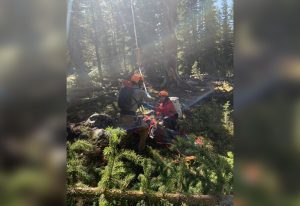SALT LAKE CITY (RELEASE) — Several hunting seasons are in full swing, and Utah’s general-season rifle deer hunt — arguably the state’s most popular hunt — starts Oct. 21. Utah Division of Wildlife Resources conservation officers are hard at work patrolling the state to protect wildlife and to make sure hunters are obeying the laws.
During this fall’s early hunts (from Aug. 1 to Sept. 11), conservation officers have contacted roughly 10,000 individuals and inspected the hunting and fishing licenses of 4,300 people. During those interactions, the officers discovered 173 illegally killed animals, including big game animals, fish and furbearer species. Most of the animals that were illegally taken are fish; however, there were also 15 big game animals illegally killed in the past six weeks.
During that time frame, officers issued 500 citations, and they will continue to investigate other violations and turn them over to the court system.
“Hunters need to take responsibility for knowing the law, having a current hunting or combination license and also knowing what species and areas their permits allow them to hunt before they go out into the field,” DWR Capt. Chad Bettridge said.
From Aug. 1 to Sept. 11, conservation officers have also received 123 tips through their reporting tools, which they say is incredibly valuable in helping them investigate poaching cases. There are currently 73 DWR officers patrolling all of Utah, and they can’t be everywhere.
“We need your help,” Bettridge said. “Please keep your eyes and ears open and report suspicious activity to us. Working together, we can enforce wildlife laws, which help with wildlife conservation and maintaining healthy populations, and also keep our recreating public safe.”
While wildlife violations can happen any time of the year, a spike typically occurs during the fall hunting seasons. If you’d like to help in the fight against illegal hunting in Utah, here’s what you should do:
Get a license plate number
If you see someone who is potentially breaking Utah’s wildlife laws, getting a license plate number is the most critical piece of information you can provide to conservation officers. If you’re not able to get a license plate number, provide the officer with as much information as you can.
“Having a license plate number will lead us to the individual, so we can interview the person and start investigating,” Bettridge said. “Other helpful details include the type and color of the vehicle the person was driving, how many people were involved and a description of what you saw. And, if you can give us a GPS coordinate, that can guide us quickly to the area where the possible violation occurred.”
Don’t confront the individual
Don’t confront someone who might be committing a violation; just observe from a distance and take note of as many details as you can.
“We don’t want anyone to be put in harm’s way or to be in a situation that makes them uncomfortable,” Bettridge said. “Report what you saw, and let us contact them.”
Report the information to the DWR using one of these channels
While reporting a wildlife violation in a Facebook message will eventually get to a conservation officer, it is much more efficient and effective to use the proper channels. Here are the various ways you can report illegal wildlife activities:
- Text officers at 847411
- Call the Utah Turn-in-a-Poacher hotline at 800-662-3337. (The UTiP hotline is staffed 24 hours a day, seven days a week and is the quickest way to report a wildlife violation.)
- Use the UTDWR Law Enforcement app
- Report online through the DWR website
The UTDWR law enforcement app was launched in March 2021. So far this year, conservation officers have received 424 tips through the app.
Another option is to call the nearest local police dispatch. Those numbers can also be found online. If you can’t find those phone numbers, you could also call 911. However, you shouldn’t call the police unless you are absolutely sure you have witnessed a poaching violation, you can’t find the UTiP number and you feel the incident must be reported immediately.
“If you have a license plate number but you can’t get cell reception, it’s totally fine to wait and report the incident when you get better cell service,” Bettridge said. “A license plate number gives us a great starting point for our investigation.”




